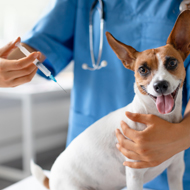Crane Project Gets a Lift
The team, led by WWT’s Head of Conservation Breeding Nigel Jarrett, knew the timing was crucial to bring the eggs back from Germany before they hatched - but they did not know quite how vital this would turn out to be.
Original plans to fly the eggs back on Friday courtesy of Airbus and Lufthanza were shelved in the wake of the recent air travel crisis. But, determined to stick to the schedule, Nigel and crane ‘dad’ Roland Digby took turns at the wheel on an epic 17 hour road trip with the 18 carefully collected crane eggs in portable incubators, arriving back at WWT Slimbridge late on Friday night.
Only hours after arriving the first chick hatched, followed by seven more, to the surprise and delight of Nigel and crane ‘mum’ Amy King who had been anxiously awaiting their arrival at WWT Slimbridge’s brand new rearing facility - Crane School 2010.
Nigel said: “We knew we would be cutting it fine, but we didn’t know quite how close it was! It really was a privilege to bring back such an iconic bird to Britain, they are back where they belong almost like a long-lost friend. This is the start of a new generation of British birds and I can’t wait to see these newly hatched cranes gracing our skies this autumn.”
The next few days should see more chicks hatch at WWT Slimbridge, with a second batch of eggs arriving at Crane School later this week by air, courtesy of Airbus and Lufthanza. Then over the next couple of months Roland and Amy will go on to teach their brood of crane chicks how to forage for food, swim, socialize and protect themselves from predators – all valuable lessons to help them prepare for life in the wild.
For further information on the Great Crane Project, please visit: www.thegreatcraneproject.org.uk



 RUMA CA&E has extended the deadline for its online survey into vaccine availability.
RUMA CA&E has extended the deadline for its online survey into vaccine availability.